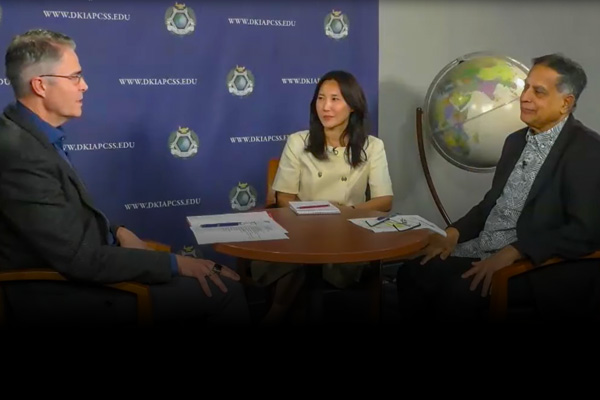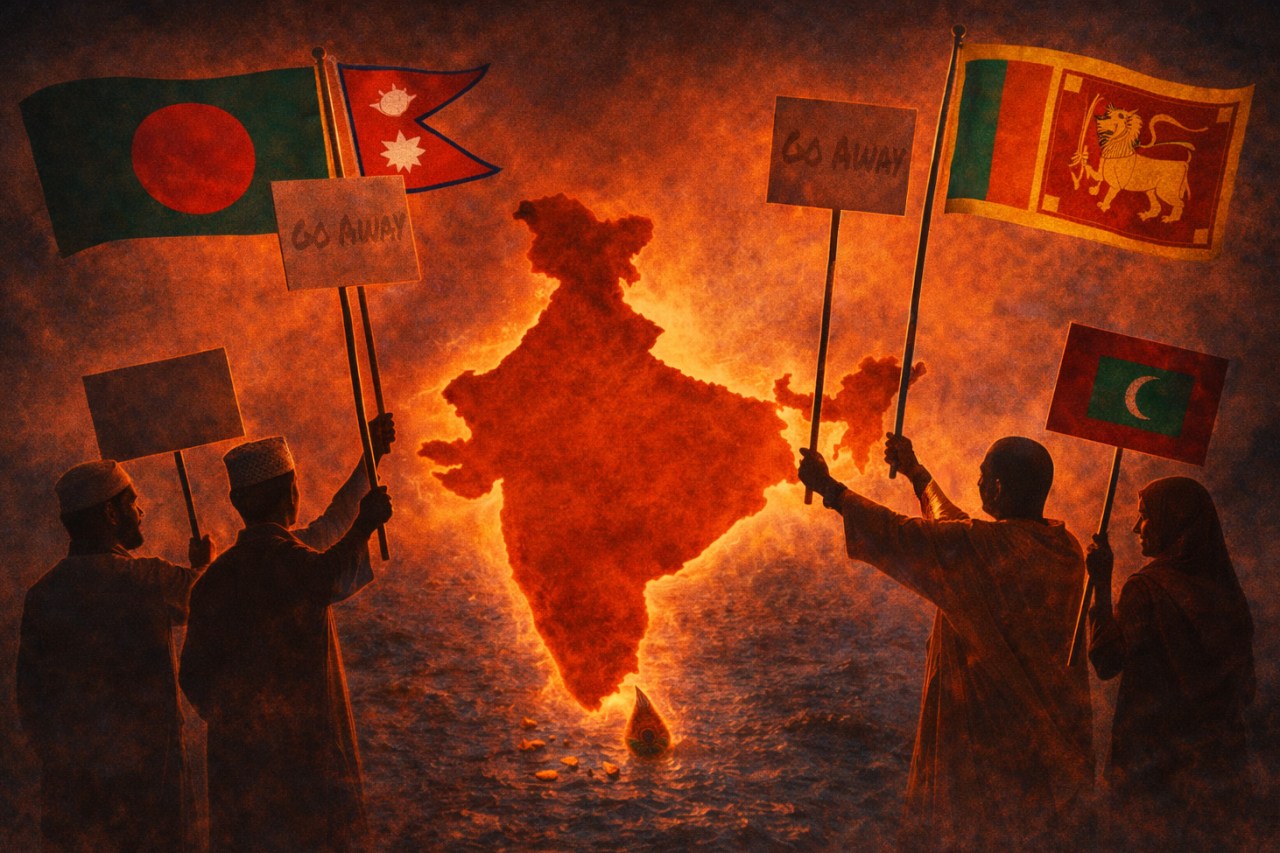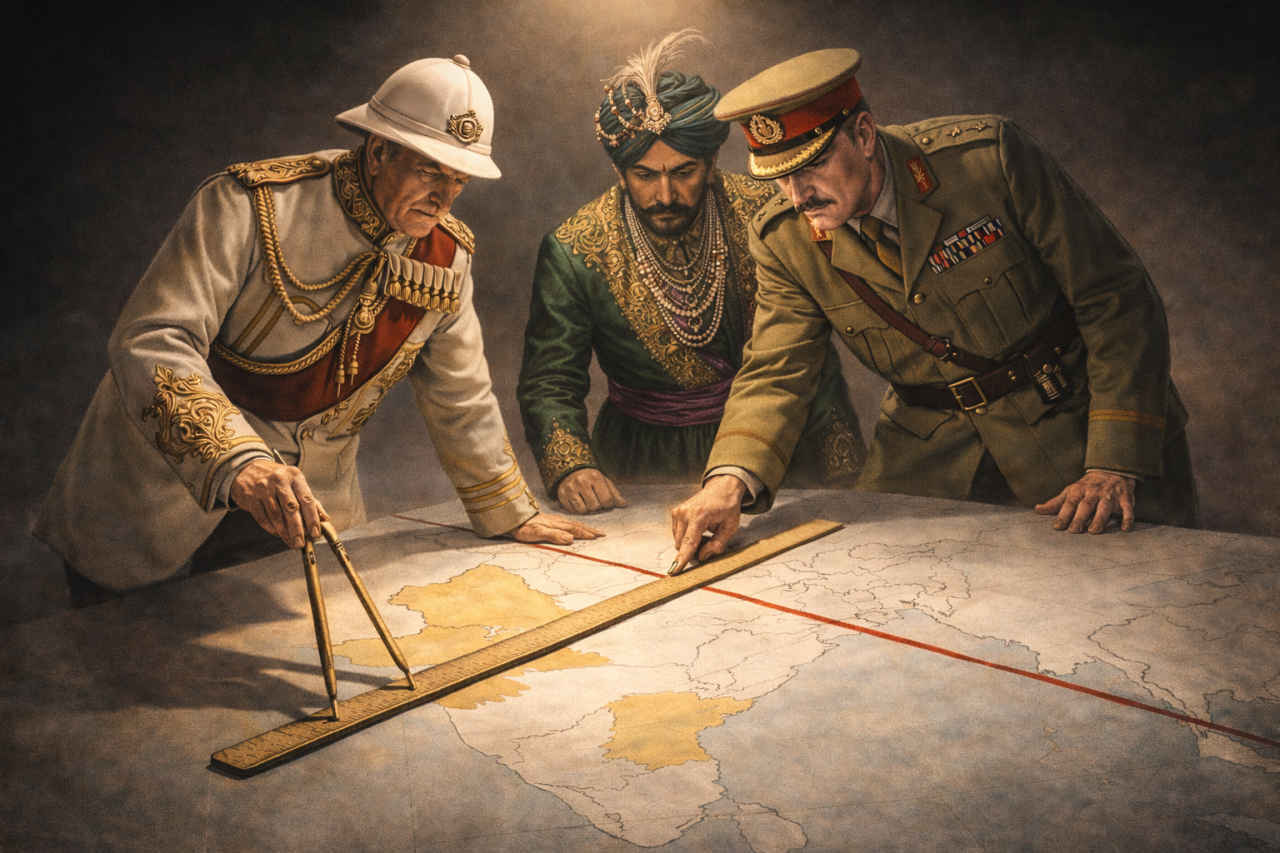By Dr. James M. Minnich
HONOLULU – (December 17, 2024) Sri Lanka’s recent parliamentary election redefined its political landscape. The National People’s Power (NPP) party secured a historic two-thirds majority under the proportional representation system, a first in the nation’s democratic history. On November 21, the new government officially took office, signaling what many hope will be a transformative era for Sri Lanka.
This critical issue was the focus of Dialogue 34, where DKI APCSS Professor Shyam Tekwani joined me to discuss the election’s extensive implications. Reflecting on this historic juncture, Professor Tekwani remarked, “The journey from Serendip to Sri Lanka through Ceylon is one of lost opportunities and wasted potential. This election, however, may represent the chance to rewrite that narrative.”
Inclusive Representation in Parliament
The NPP’s rise has brought unprecedented diversity to Sri Lanka’s parliament. Among the 175 first-time lawmakers are 21 women and 18 doctors. Particularly significant is the presence of lawmakers from war-affected regions in the north and east, home to Tamil and Muslim communities. Their participation raises hopes for reconciliation and addressing historical grievances, though it also introduces the challenge of uniting diverse voices within a single legislative framework.
Professor Tekwani highlighted the significance of this change: For a southern party to make electoral gains in the Tamil-dominated north is unprecedented. It symbolizes hope for a truly unified Sri Lanka. But representation alone is not enough. Without accountability for past atrocities, this moment could falter.
A Rejection of the Status Quo
This election reflects a decisive rejection of Sri Lanka’s entrenched political elite. Voters rallied behind Anura Kumara Dissanayake, the NPP’s charismatic leader, whose journey from humble beginnings to national prominence resonates deeply. His pragmatic vision and grassroots organizing have inspired hope for a new era of governance, economic recovery, and national unity.
Economic Challenges Ahead
Despite this optimism, Sri Lanka faces significant economic hurdles, including substantial debt, inflation, and the constraints of a $3 billion International Monetary Fund (IMF) bailout. The NPP’s supermajority offers a chance for bold reforms, yet it also raises concerns about power concentration and maintaining institutional checks and balances. Balancing economic recovery with public expectations will be a defining test of the new administration’s leadership.
Geopolitical Balancing Act
Strategically located in the Indian Ocean, Sri Lanka’s stability has regional and global significance. The government must skillfully navigate its relationships with India and China, balancing economic partnerships with national sovereignty. Managing key Chinese-backed investments, such as the Hambantota Port and Mattala Rajapaksa International Airport, will require diplomatic and economic acumen to ensure these ventures benefit Sri Lanka while safeguarding its interests.
Reconciliation through Representation
The addition of Tamil and Muslim lawmakers presents a rare opportunity to address long-standing grievances and promote national unity. Early steps, such as reopening roads and dismantling military checkpoints in former conflict zones, signal a commitment to reconciliation. However, as Professor Tekwani cautioned, “The scars are still fresh; the wounds are deep. Representation without addressing issues like war accountability and the fate of disappeared persons will not heal the nation. These steps must go hand in hand.”
A Model for Democratic Renewal
Strategically located in the Indian Ocean, Sri Lanka’s stability has regional and global significance. The government must skillfully navigate its relationships with India and China, balancing economic partnerships with national sovereignty. Managing key Chinese-backed investments, such as the Hambantota Port and Mattala Rajapaksa International Airport, will require diplomatic and economic acumen to ensure these ventures benefit Sri Lanka while safeguarding its interests.
A Moment of Hope and Uncertainty
Sri Lanka stands at a crossroads. The new government must navigate a labyrinth of challenges, including governance, economic recovery, and reconciliation. As Professor Tekwani aptly stated, “If Sri Lanka gets this right, it could become a leader among small states in South Asia and reclaim its place as a role model. But this will require extraordinary resolve and governance.”
Book Recommendations
For those seeking deeper insights into Sri Lanka’s history, politics, and culture, Professor Tekwani recommends:
- This Divided Island: Life, Death, and the Sri Lankan War by Samanth Subramanian:
A vivid exploration of the human cost and lingering impacts of Sri Lanka’s civil war, offering compelling stories from both sides of the conflict. - Reaping the Whirlwind: Ethnic Conflict, Ethnic Politics in Sri Lanka by K. M. de Silva:
A detailed account of Sri Lanka’s ethnic tensions and their political consequences provides a historical lens to understand the roots of the conflict. - Return to Sri Lanka: Travels in a Paradoxical Land by Razeen Sally:
A reflective journey through Sri Lanka, blending personal experiences with sharp insights into its cultural and political landscape. - Anil’s Ghost by Michael Ondaatje:
A powerful novel set during Sri Lanka’s civil war, intertwining personal stories with broader themes of violence, justice, and memory. - The Seven Moons of Maali Almeida by Shehan Karunatilaka:
A darkly humorous and thought-provoking tale exploring Sri Lanka’s recent history through the unique perspective of a deceased war photographer.
These works provide invaluable perspectives on Sri Lanka’s past, present, and potential futures, blending narrative depth with analytical rigor to illuminate the island’s complexities.









Great institution and great fellows at APCSS! Really proud of my myself being an Alumni of CCM 2009, and TSC 2-1 2024.
Baaska
Colonel, NEMA of Mongolia
Very nice program well conducted, delving into the goodness, opportunities and future to be shaped by the new regime. We have got into this mess through bad governance no doubt. But our progress was marred, and also public opinion is shaped by the Big Brother who pokes hand into our affairs. The Tamil uprising was as a result of Tamil Politicians turning to India (Tamil Nadu) for support further blown out of proportion by direct interventions. We do not have any enmity towards or block Tamils who are with us but those who try to go against us. The new regime is young and energetic, full of intellect and vigor but not the maturity and statesmanship. They are bent on eradicating corruption and eliminating wastage whilst restoring independence of pillars of democracy. They are burdened by the unsustainable borrowings of the past corrupt regimes and degradation of markets and brandings due to wrong policies. They have a lot to catch up with and put right. Let us give them time and moral and technical support to gain new markets and improve on the existing.